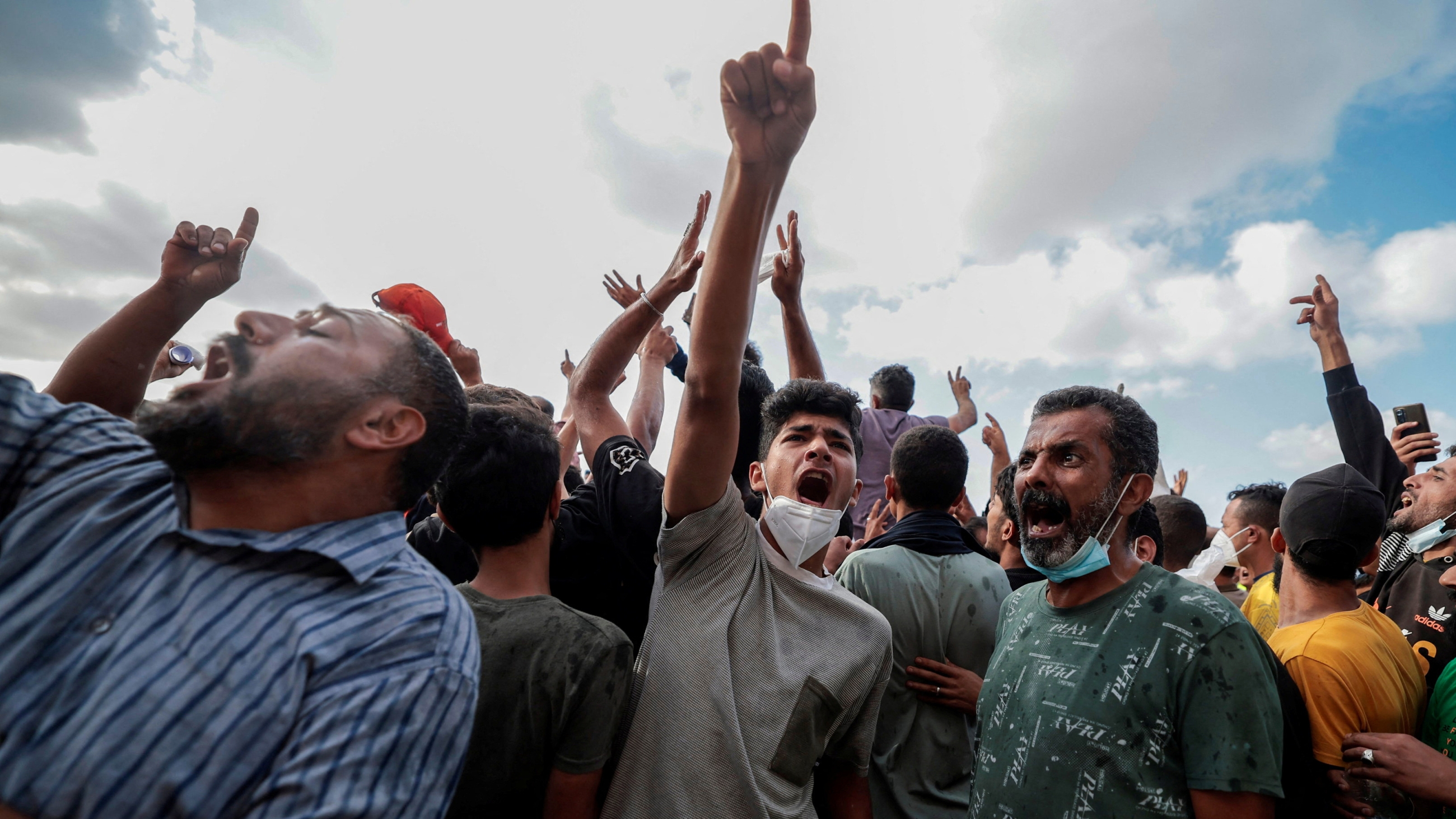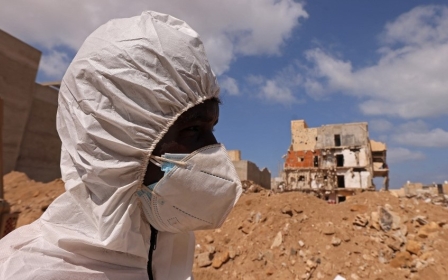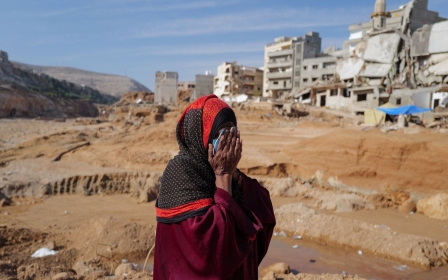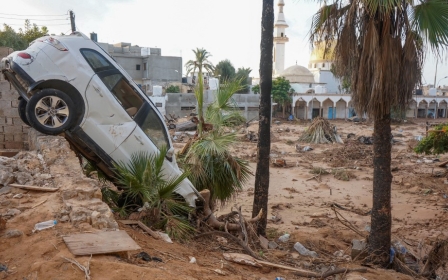Libya floods: Media blackout imposed in Derna as anger spills over

Journalists have been ordered out of the flood-hit city of Derna as Libyans' anger begins to spill over at what they see as a failure by the authorities to protect them from the impact of Storm Daniel.
The order issued by Libya's eastern government comes a day after a mass demonstration, which also saw protesters torch the house of the city's mayor.
Hichem Abu Chkiouat, minister of civil aviation in eastern Libya, claimed to Reuters that journalists had to leave in order to create "better conditions for the rescue teams to carry out the work more smoothly and effectively".
"The large number of journalists has become an impediment to the work of rescue teams," he said.
Demonstrators crowded into the square in front of Derna's Sahaba mosque on Monday chanting slogans and waving flags from atop the mosque's roof.
Some later stormed and torched the house of Mayor Abdulmenam al-Ghaithi, who had already been suspended by the eastern administration along with all members of the Derna city council.
A number of protesters also chanted against Ghaithi's uncle, parliament speaker Agila Saleh, who sparked fury last week when he described the deaths in Derna as unavoidable.
"Aguila we don't want you! All Libyans are brothers!" protesters chanted.
Around 20,000 people are believed to have been killed when Storm Daniel battered eastern Libya, overwhelming an aged dam and causing flash flooding on a catastrophic scale.
In recent days the aid response has concentrated on collecting the dead, amid fears of the spread of disease.
Grief has increasingly turned to anger, as a number of foreign officials have pointed out that many of the deaths could have been avoided had the correct preparations been made.
Last week, the UN said that most of the deaths from the floods in Libya could have been prevented if early warning and emergency management systems were in working order.
The UN's World Meteorological Organisation (WMO) Secretary-General Petteri Taalas told reporters in Geneva: "The emergency management authorities would have been able to carry out the evacuation of the people and we could have avoided most of the human casualties."
While Libya's national meteorological centre did issue warnings for extreme weather 72 hours before the storm hit, WMO's regional office said it wasn't clear "whether [the warnings] were effectively disseminated".
Middle East Eye propose une couverture et une analyse indépendantes et incomparables du Moyen-Orient, de l’Afrique du Nord et d’autres régions du monde. Pour en savoir plus sur la reprise de ce contenu et les frais qui s’appliquent, veuillez remplir ce formulaire [en anglais]. Pour en savoir plus sur MEE, cliquez ici [en anglais].




